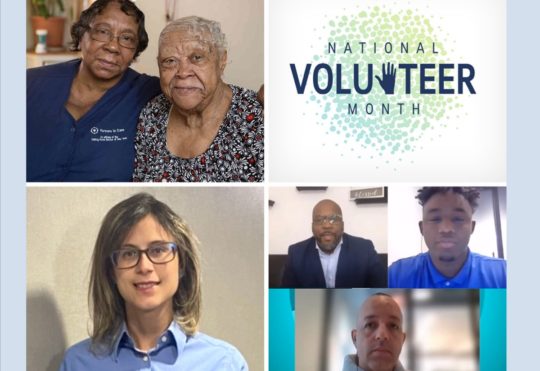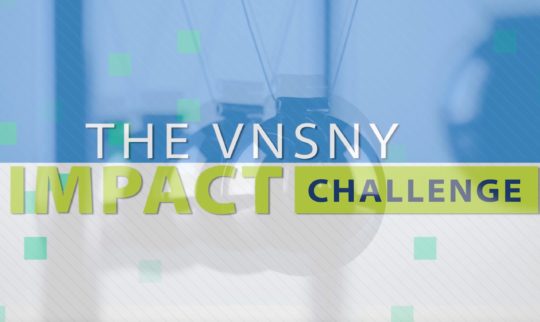VNSNY Employee Support Calls Provide Comfort and Social Connection
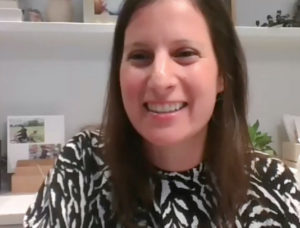 When VNSNY began doing telephone support calls for employees during the coronavirus pandemic’s spring peak, Amanda Weiner, VNSNY Organizational Development Specialist, recalls how moving it was to see such widespread and immediate response to the support. “We had 168 people phone in to the first call for Partners in Care home health aides, then 178 for the second—so we knew we were on to something right away,” she says.
When VNSNY began doing telephone support calls for employees during the coronavirus pandemic’s spring peak, Amanda Weiner, VNSNY Organizational Development Specialist, recalls how moving it was to see such widespread and immediate response to the support. “We had 168 people phone in to the first call for Partners in Care home health aides, then 178 for the second—so we knew we were on to something right away,” she says.
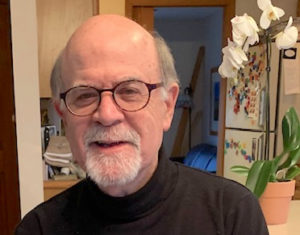 Amanda, who has been with VNSNY 15 years, teamed up with VNSNY Hospice Lead Social Worker Ben Cirlin to organize the emotional support calls—several of which Ben hosts himself. “I hope it reduces the stigma for people around asking for help,” she notes. “The powerful words I’ve heard from our committed staff will never leave me.”
Amanda, who has been with VNSNY 15 years, teamed up with VNSNY Hospice Lead Social Worker Ben Cirlin to organize the emotional support calls—several of which Ben hosts himself. “I hope it reduces the stigma for people around asking for help,” she notes. “The powerful words I’ve heard from our committed staff will never leave me.”
The earliest support calls were area-specific, including calls tailored to home health aides, and CHHA managers and field staff. Then it became apparent that open-staff calls would be important, too. Social workers with VNSNY Hospice and Community Mental Health Services have also led smaller program-specific calls throughout the pandemic. More than 80 calls have been held since early April, drawing a total of more than 3,500 callers (including some repeat customers who join regularly).
The calls are confidential, anonymous and voluntary, open to any employee who wants to speak, support, console—or just listen, as many people do, says Amanda. Some are hosted by a licensed mental health counselor or social worker from VNSNY, while others—to provide an additional layer of privacy—are facilitated by an external therapist from New Directions, our Employee Assistance Program.
Today, approaching the 6-month milestone of the pandemic, the calls still range from 5 to 50 participants and cover a range of subjects. It’s clear that the crisis has taken an emotional toll on just about everyone. Topics include anxiety about the coronavirus in people’s personal and professional lives; balancing work and family, including caring for children or older family members at home; and systemic racism highlighted by this spring’s killings and protests. “The calls are not necessarily about providing solutions,” adds Amanda, although people do share supportive resources.
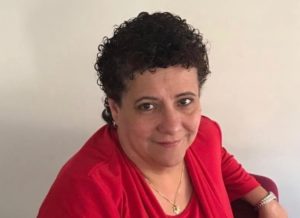
Rosa Marcus, Associate Director of Certified Administration for Partners in Care.
Ben facilitates the conversation whenever he feels it’s beneficial. “The calls are more about creating a safe space for people to know that they’re not alone,” he explains. In addition to Amanda and Ben, the program’s supporters include Marian Haas, Senior Vice President and Chief Human Resources Officer, and Rosa Marcus, Associate Director of Certified Administration for Partners in Care.
